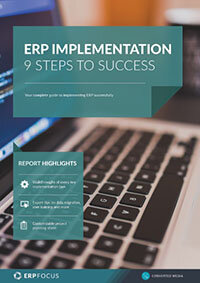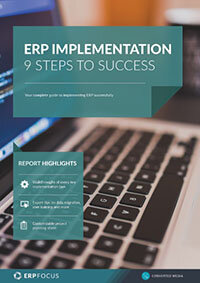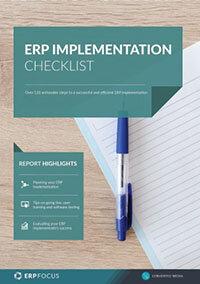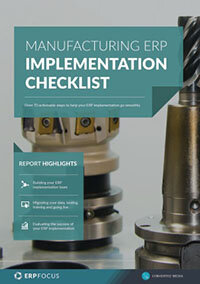Working With ERP Consultants - The Basics
There is an oft-repeated story about a pair of hikers deep in the forest who see a bear coming their way in the distance. One of the pair starts looking around for something to use for protection, while the other sits down calmly, and begins changing from hiking boots to running shoes. “What are you doing?” the first hiker asks. “You know you can’t outrun a bear!” Without looking up, the second hiker replies, “I don’t have to outrun the bear. I just have to outrun you.” To a certain extent, that story defines your relationship with ERP consultants. You will never likely know how much they really know about your ERP system, only that they know more than you do.
Define Your Goals
The first thing you should do before you ever on-board your first ERP consultant is to define in writing what your consulting goals are. This need only be two or three sentences, and the goals depend on the size and nature of your ERP implementation. If you are a small ERP team, or a one-time implementation, your goals might be to have the consultants do as much of the technical set-up work as possible as quickly as possible. If you are a larger team or have multiple implementation cycles, you may want your consultants to concentrate more on teaching and knowledge transfer than on doing hands-on work, since you will want to take over more and more of the implementation and support responsibility over time.
There are a couple of reasons for knowing in advance the strategic role you want your ERP consultants to play. The first is that most consultants find satisfaction in mastering the technical complexities of your ERP system; not all have either the patience or desire to sit back and teach someone else to acquire those skills. The second is that consultants are expensive; you can afford two or three internal FTEs for every consultant you have on the team, so it is essential that your utilization plan is well thought out. By knowing what sort of role you want your consultants to play, you will do a better job of choosing consultants.
Take References
When vetting ERP consultants, never hire a consultant without first obtaining a personal recommendation from someone who worked with he or she on a previous implementation. This recommendation can come from a reference call to another company, or from your consulting partner company. The majority of consultants are talented and hard working, but you should never read a resume and accept it as the gospel. In addition to protecting you from consultants who have more skill at creative resume writing than configuring ERP systems, a personal reference will give you a chance to ask about some of the intangible skills you might be looking for.
In the end, you will make good and bad choices with ERP consultants, just as you do with internal hires. Correct the consulting mistakes quickly; they are too expensive to live with.
Free white paper

ERP Implementation: 9 steps to success
The 9 proven steps you should follow when implementing ERP

Featured white papers
-

ERP Implementation: 9 steps to success
The 9 proven steps you should follow when implementing ERP
Download -

ERP Implementation Checklist
Over 120 actionable steps to implementing a new ERP successfully
Download -

Manufacturing ERP Implementation Checklist
Over 70 actionable steps to rolling out new manufacturing ERP software
Download
Related articles
-

ERP implementation plan (ERP implementation process guide)
Everything you need to know about running a successful ERP implementation - and we mean everything
-

How the right ERP can help you launch a successful omnichannel business
Petersen Zhu, CEO of DigitBridge and Vibes Base, shares how to create a scalable omnichannel stra...
-

The case for multi-tier ERP implementations
Learn more about multi-tier ERP implementation and why you might need one

